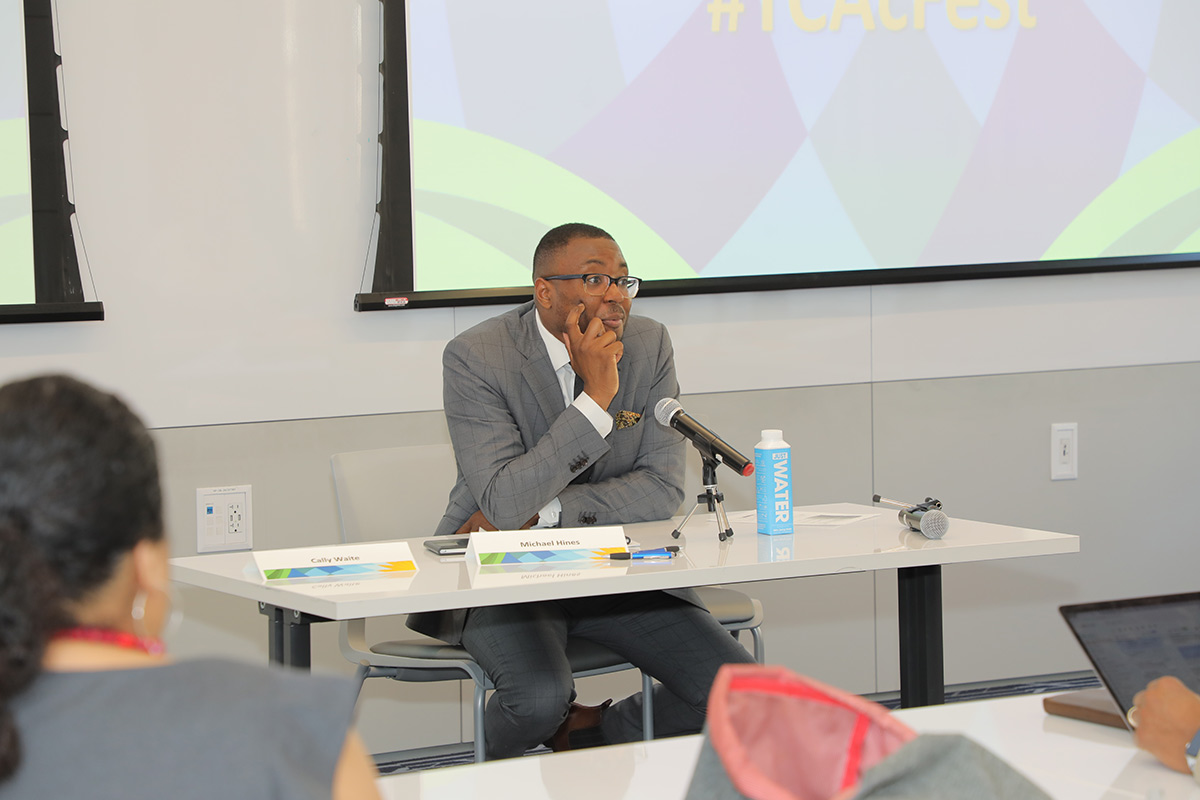Michael Hines’ mother had a standard response whenever he enthused about a trip to a museum or a historical fact he’d learned.
“’That’s awesome, that’s really great,’” Hines’ mom – herself a teacher – would say. “‘But where were we when all that was going on?’”
“And by that,” said Hines, who delivered the inaugural Minority Postdoctoral Fellow Lecture at this year’s Academic Festival, “she meant ‘where were the African Americans in the story?’”
Hines, an historian who is completing a two-year tenure as TC’s 31st scholar Minority Postdoctoral Fellow, credits his mother’s question with inspiring him to write The Blackboard and the Color Line: Madeline Morgan and Black History in Chicago’s Public Schools, 1942-1945, which will soon be published by Beacon Press.
Morgan was a social studies teacher and activist whose goal was to ensure recognition for the contributions of Black Americans in “every phase of American history…in adventure, science, education, art, music, war and labor.” In 1941, she teamed with Superintendent William Johnson to add a “black curriculum” to social studies lessons taught in 353 Chicago K-8 public schools.
Chicago’s school system at that time was the nation’s second largest, but the number of students there who actually learned about black history is unknown because the district left the decision to teach Morgan’s curriculum up to individual teachers – most of whom were white.
Academic Festival 2019
The day included an extensive lineup of presentations, panels and other events featuring TC faculty, students, alumni and staff.
Still, as Hines relates, when Morgan visited with white students at a suburban Chicago school one day, the lesson she taught on Booker T. Washington, George Washington Carver, James Weldon Johnson and other prominent African Americans was so powerful that a teacher at the school called it “an opportunity to erase the color line from the blackboards of America.”
That opportunity proved fleeting.
After World War II, Morgan’s optional curriculum largely disappeared in the wake of changes in leadership at both the city and school levels. Nearly two decades would pass before black history would again be part of the history lessons taught in the Chicago Public Schools.
TC’s Minority Postdoctoral Fellowship promotes research by scholars representing groups that are under-represented groups in the academy. In introducing Hines, Professor of History & Education Cally Waite, who in 1996 was the College’s first Minority Postdoctoral Fellow, called the program “a great opportunity for TC to speak to the very important tenet of preparing faculty, especially faculty of color. It’s all about learning here and taking that experience elsewhere.”
Hines is doing exactly that: His next stop will be Stanford University’s Graduate School of Education, where he has been appointed Assistant Professor in the Department of History and Education.
